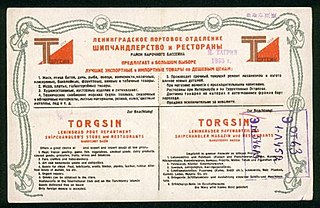 W
WBaltona is a Polish company acting mainly on a duty-free market in Poland and abroad.
 W
WBeriozka was the overall name applied to two chains of state-run retail stores in the Soviet Union that sold goods in exchange for foreign currency. Beriozkas sold luxury goods such as chocolate and caviar that were often unavailable or unaffordable in traditional Soviet markets and shops. In English-language advertisements and signs, the spelling was always "Beriozka" rather than the more conventional transliteration "Beryozka." The Soviet ruble was not internationally convertible, and the government needed foreign hard currency to buy goods and services from abroad. The Beryozka shops were an efficient source of hard currency.
 W
WCorecom was a chain of hard-currency stores during the Communist rule in Bulgaria. Goods were often priced cheaper than in the West, however, they were still inaccessible for most Bulgarians because the national currency, the lev, was not accepted at the stores. Apart from Western diplomats and visitors, access to hard currency was a privilege of the nomenklatura and a few other people who were authorised to travel abroad or do business with Westerners. Anyone purchasing goods at Corecom but not authorised to possess foreign currency ran the risk of investigation by the authorities.
 W
WA Friendship Store is a state-run store in the People's Republic of China (PRC), which initially sold exclusively to foreign visitors and tourists, diplomats, and government officials, but now has no restrictions on customers.
 W
WIntershop was a chain of government-owned and operated retail stores in the German Democratic Republic in which only hard currencies could be used to purchase high-quality goods. The East German mark was not accepted as payment. Intershop was originally oriented towards visitors from Western countries, and later became an outlet where East Germans could purchase goods they could not otherwise obtain. An unintended consequence was that ordinary East Germans had some insight into the selection of goods available in the West, which they could then compare with the rather limited offerings available in their own country.
 W
WPewex was a chain of shops founded in 1972, during the Communist era in Poland that accepted payment only in United States dollars and other hard currencies, instead of the country's indigenous currency, the Złoty.
 W
WTorgsin were state-run hard-currency stores that operated in the USSR between 1931 and 1936. Their name was an acronym of torgovlia s inostrantsami, "trade with foreigners." Unlike the later Beryozka stores, Torgsin stores were open to all Soviet citizens, provided they had access to hard currency, gold, or jewels. Torgsin was established by the Sovnarkom chairman Vyacheslav Molotov's order of 5 July 1931 and disbanded on 1 February 1936.
 W
WTuzex was a series of state-run shops in Czechoslovakia from 1957 to 1992 which did not accept normal Czechoslovak currency but only vouchers which could be purchased from banks using foreign currency. They supplied luxury items: local goods in short supply and in particular foreign goods. The Tuzex vouchers were effectively an unofficial parallel currency.